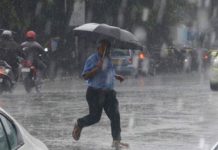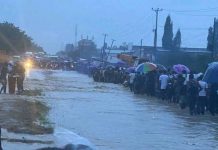ON matters connected with weather trends, we can safely declare that times have truly changed, without the remotest fear of contradiction.
There is ample evidence to that end, indeed, for in the fairly distant past, agricultural seasons followed particular patterns.
On a virtually unbroken chain, the time for planting and harvesting in relation to particular crops or plants was known, based on sets embracing some months being wet and dry seasons, as well as those of moderate ones inbetween.
Come the curse of climate change, substantial guesswork, as well as reliance on good luck, have come into play.
Due to hostile weather, farmers suffer considerable losses when rains on which they count to soften the soil and nurture seeds for various food crops don’t materialise. And excessive sunshine is a also a big spoiler.
On the social front, it is risky to plan staging events at open-air venues during presumably sunny seasons, because heavy rain may materialise out of the blue and wreck the spirits of hundreds of people.
Weather forecasts, to which not much attention had been paid in the past, now constitute a very critical service.
The weather trend outlined in a statement issued by the Tanzania Meteorological Authority (TMA) recently is very significant, and to which all people, as well as administrative outfits must pay heed.
The trend covering March, April and May covers aspects like normal, average and heavy rainfall in particular regions.
This thus gives the people ample opportunity to make whatever adjustments are necessary, including taking crucial precautions.
Human settlements are among the most critical aspects, especially in relation to flood-prone area residents. President John Magufuli recently urged them to shift to safer, higher ground.
The call must be heeded to save precious lives. The call isn’t new, but a follow-up to several issued several times in the past, by leaders at various levels.
Yet quite many of those in the vulnerable situation don’t respond as they should, banking on the rains easing, dry spells emerging, life proceeding, and even banking on government support.
That is a negative perception, for here, we have a situation of people pursuing an indefensible suicidal approach.
At public service level, drainage systems in urban centres constitute a very critical problem that demands firmer action.







